Every responsible fish keeper wants to give their pets a comfortable life, but the harsh reality is that some don’t survive from their initial purchase. Even the most attractive aquarium fish can die from a variety of causes, and it’s important to be able to tell when a pet is dead, dying, or sick so that you know when to intervene.
In this article, we’ll be going over the 9 signs that your beloved pet is dead, dying, or sick so you can get a clearer picture of what’s going on.
9 Signs That Your Fish Is Dead, Dying, or Sick
Fish that are sick or dying will display certain signs that can help you determine what’s wrong and how to fix it. While the signs and symptoms below might not always indicate a problem, they are good indicators that you should look into their health
Cloudy Pupils
Cloudy eyes are a symptom of severe infection – this is usually a sign of an advanced case of fin rot, fungal infections, or pop eye disease. Given the advanced stages of these illnesses, it is vital that you diagnose the illness as quickly as possible and provide them with the necessary treatment.
Left untreated, the illnesses causing your pet’s eyes to appear cloudy can kill them. In addition, some of these illnesses are contagious. If several aquarium fish in your tank start to look this way, it is even more crucial that you act quickly so as to save them. The best course of action to take is to quarantine the sick fish from your other pets and treat them with a medication specific to their illness.
Swimming Sideways or Upside Down
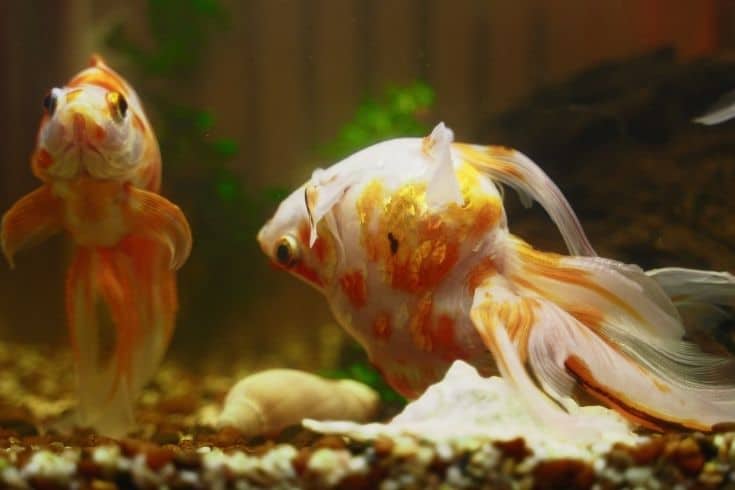
Fish that swim sideways or upside down are experiencing difficulty swimming. Illnesses such as swim bladder disorder can disrupt their bladder functions, resulting in awkward or unnatural body movement.
The reasons for your pet’s abnormal swimming behavior can range greatly in severity, but it is important to determine the exact cause in order to provide the proper treatment. As is the case with many illnesses, the sooner you take action, the greater your chances of saving your pet.
White Spots on the Body
White blotches on the body are a common symptom that may indicate bacterial infection, ich, or other parasitic diseases. Fish that are covered in white spots are likely feeling very sick and should be tended to immediately before their condition worsens. Ich in particular is a common disease that can prove fatal if it is not cured.
The white spots consuming your pet’s body may also be indicative of a more mild infection, in which case your pet will likely still benefit from treatment. However, regardless of the severity, you should not allow your pet to suffer any longer – it is always best to administer medication when signs of infection are present.
Loss of Appetite
A lack of appetite is a common sign of sickness and disease. This is especially dangerous in brackish and saltwater species because they are often more sensitive to changes in water chemistry.
If your fish doesn’t eat for more than a couple of days, it is almost always because something has gone wrong with their environment. A loss of appetite can make it impossible for your pet to fight off infection or illness, so it is important that you figure out what’s wrong as quickly as possible!
Color Fading
Are your fish’s beautiful colors fading? Tropical species come in a dizzying array of color combinations, which is why it can be alarming to notice your pet’s body color fading to a pale or dull gray. Unfortunately, this is most often a sign of a serious health problem, and you should seek expert help immediately.
It is important to note that color changes in some species are completely natural. For instance, goldfish may have bright orange as their basic color, but some may have a white color morph which is natural to the species. So, if your pet is genetically predisposed to turn lighter over time, you have nothing to worry about!
Gasping for Air on the Water Surface
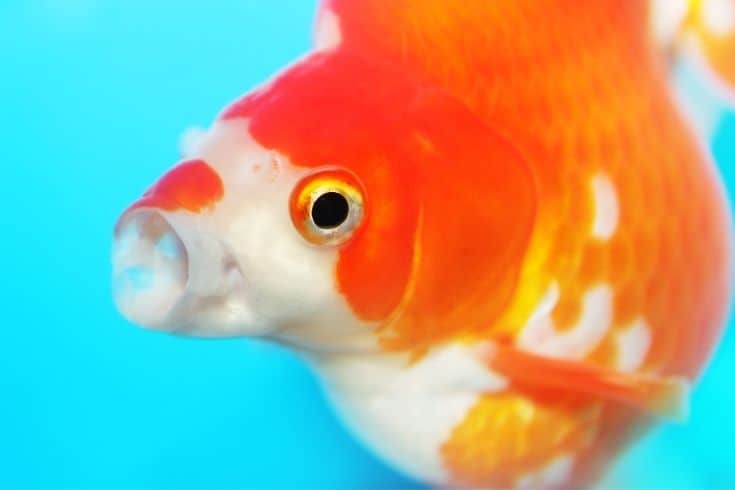
One of the main signs of illness is gulping for air at the surface of the water. The cause for this behavior can vary, but it is generally an indication that your pet’s gills are not working properly, or that there is a blockage somewhere in their respiratory system.
The best way to deal with this issue is to perform a quick water change in the tank, as this will help to make breathing easier for your pet. In addition, you can give your fish a thorough treatment of medication that is intended to treat the disease from which they are suffering.
Dramatic Weight Loss and Muscle Atrophy
It should come as no surprise that sick or dying fish will lose body weight and strength – after all, who has time for exercise when you are too busy wallowing in misery?
However, if your pet loses a significant amount of weight over the course of a few days, it is probably time to take action. This symptom is indicative of other problems within the tank that will need to be addressed – otherwise, your pet will continue weakening until they have no energy left.
Swollen or Distended Belly
If your pet’s abdomen is bloated or distended, it might be experiencing dropsy. This common aquarium illness is brought on by poor water quality and can manifest itself as a noticeable swelling of the belly or scales, with or without visible expansion of internal tissue.
Dropsy will often continue unchecked unless you take action to improve your tank’s conditions. By the time you see the problem, your pet’s organs may have already begun to be compromised.
Gill Flaps Stop Moving
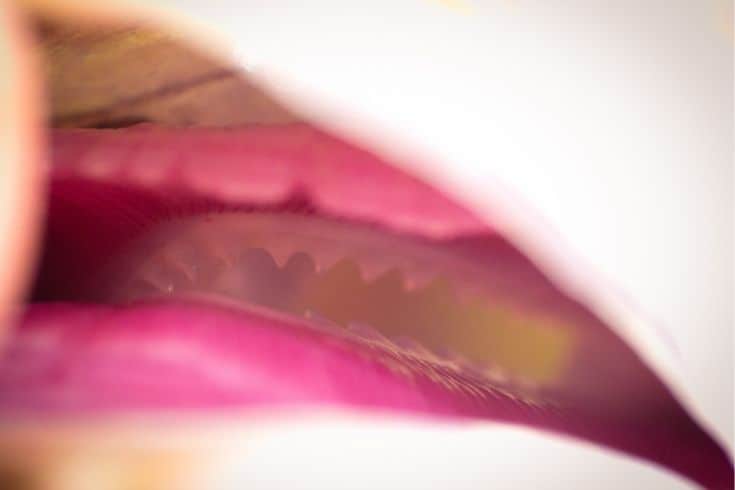
Last but not least, a key sign of death is when the gill flaps or operculum stop moving. The gills are what keep the fish alive by providing oxygen and removing carbon dioxide from its system, so many hobbyists turn to the gills to observe for signs of life.
If you notice that your pet’s operculum no longer opens and shuts, or if their gill flaps appear to be staying open all of the time, it is probably a sign of dead fish. Unfortunately, the odds of recovery or resuscitation at this stage are minimal to none.
Common Causes of Sick or Dead Fish
Fish die or get sick for many different reasons, and the specific cause of a condition may be hard to pinpoint. However, there are several factors that are common to the vast majority of such cases. These causes include:
Deterioration of Water Quality
It comes as no surprise that tank water that is dirty or filled with chemicals will have a negative impact on the health of your pet. Unfortunately, many people do not realize the impact water quality can have on their pets until it is too late!
Not only does dirty water serve as a breeding ground for bacteria and disease, but it can also cause changes to the pH or hardness of the water. This in turn can lead to organ failure, which will quickly become deadly if left untreated.
Inappropriate Water Temperature

Water that is too warm or cold can lead to a myriad of health issues, from organ failure to bloating. Therefore, it is important not only to maintain an appropriate temperature range for your pet’s tank as a whole, but also for each individual species.
As with water quality, keeping the water at the ideal temperature will ensure that your pet has a strong immune system and a healthy environment to live in. Invest in a reliable thermometer, and keep an eye on its readings to make sure that they are optimal!
Chronic Stress
Stress can lead to adverse health effects for your pet because it lowers their immune system, leaving them more susceptible to disease. Even if your pets are in a healthy fish tank, it can be hard to avoid stress entirely. Stress can be caused by a number of factors, from a lack of hiding spots to unstable water parameters.
This is why it is important to offer your pets plenty of hiding spots within the rocks or plants of their habitat. In addition, it’s a good idea to add marble or flat slate rocks in with the substrate. These smooth surfaces will give your pet a place to rest without being in danger of being damaged by sharp edges.
Improper or Inappropriate Diet
While it might seem easiest to simply feed your fish pellets all of the time, it is important to offer them some variety in their diet. You should also be sure to feed them with life stage-appropriate food. For instance, newly hatched fry should not be fed adult food – they should be fed natural, easily digestible protein sources such as daphnia.
In addition, you should do your best to feed your pets reasonable amounts of food. Many people tend to overfeed their pets, which results in irregular bowel movement and damage to the swim bladder organ. This is something you want to avoid at all costs! To learn more about what fish eat, check out this article.
What To Do When Your Fish Is Dying
Fish that are near death or severely ill can often be saved, assuming that you catch this condition early enough. Many aspects of what you ought to do (type of medication administered, for example,) have a lot to do with the nature of the illness you’re dealing with. In some cases, it may also have to do with the species of fish being treated.
In most cases, however, there are many things you can do to alleviate your pet’s stress from diseases. These tips will not cure every unexplained illness or serious disease, but they are certainly good places to start.
Change Your Aquarium Water
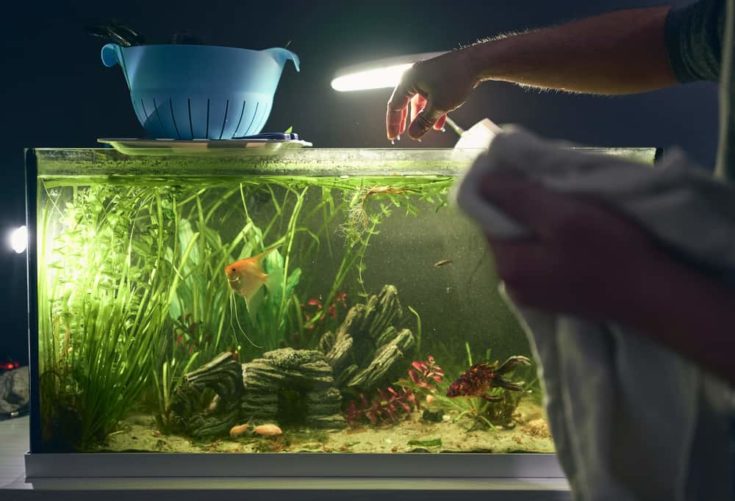
First, it is important to note that your pet can only be saved if you are able to quickly improve your aquarium’s water conditions. If the tank has not been cleaned in a while or something is wrong with the filter, now is the time to fix this issue! Not only will clean water be necessary for recovery, but it will also result in lower overall stress
To ensure that you are maintaining adequate water quality in your tank at all times, you should conduct frequent tests with ammonia and nitrate test kits. In addition, you need to ensure that your tank isn’t overstocked, as this can result in a heavy bioload. For instance, 10 gallons of water should only contain one Betta.
Provide Appropriate Treatment
It is vital to provide proper care for your pets when they are sick. Not only should you administer medication as directed, but you also need to take additional steps to ensure that you provide your pet with a comfortable environment that is conducive to recovery.
In practice, this means that they should be housed in clean bodies of water that have been treated with a water conditioner to remove chlorine and chloramines. If your pet seems to have trouble breathing, try using an air stone or air diffuser to increase the oxygen concentration in the water.
Euthanize if Necessary
Unfortunately, part of caring for your pets is knowing when to let go. If your beloved friend has a dismal chance of recovery, it may be best for you to help them on their way out. Not only will this ease their suffering, but it will also reduce the risk of disease or infection for the other inhabitants in your tank.
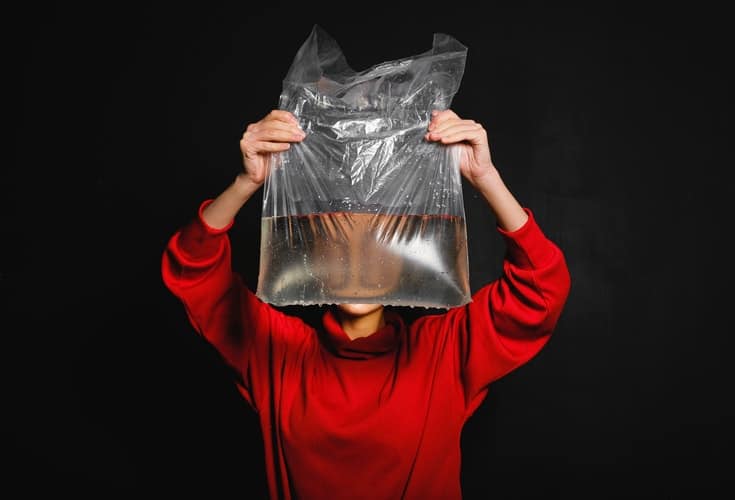
To euthanize a dying fish, pick up your sick pet while wearing a pair of disposable gloves to prevent cross-contamination. Then, place them into a bag of ice water, or simply place them into your freezer. Afterward, you can dispose of your dead fish via your method of choice.
Conclusion
We hope this article gave you a comprehensive overview of how to tell if your pets are dying, sick, or suffering. Every fish keeper understands the pain of losing their beautiful fish to old age or disease, and we want to prepare you for that unfortunate but inevitable eventuality.
The best thing you can do is to provide your pets with a comfortable life free of stress, and keep your aquarium as pristine as possible. Strive to learn the warning signs for illnesses or diseases that are likely to strike – then take action before it is too late!
Did you enjoy this article? If you did, don’t forget to share it with a friend who could benefit from it! And if you have anything to add, do drop us a comment below as we’d love to hear from you. As always, thanks for reading, and good luck!
